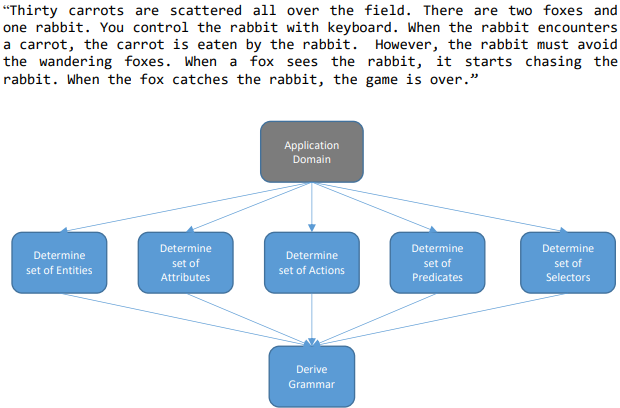THE CHALLENGE
The main challenge in turning natural language into working game code lies in bridging the gap between how people describe ideas and how computers execute instructions. From a business perspective, this creates a barrier for nontechnical users who want to design games but lack programming expertise. Existing tools often rely on rigid, rule-based systems or fragile templates that break easily when faced with unfamiliar words, flexible sentence structures, or casual phrasing. These systems also lack the ability to learn from context or adapt to new vocabulary, making them hard to scale across different game types or user needs. This technical inflexibility results in high user frustration, limited creative freedom, and increased support costs, ultimately hindering broader adoption in the growing market of low-code and no-code development platforms.
OUR SOLUTION
Our solution is a user-friendly web-based platform that empowers anyone to create simple computer games just by describing them in plain English. It intelligently interprets each sentence using a blend of contextual language processing and a flexible dictionary of game-related terms, allowing the system to understand new words and phrasing as users write. By combining fuzzy grammar matching with a template-driven code generator, the system automatically produces clean, object-oriented code that runs instantly. This means users receive immediate visual feedback and error alerts, making it easy to experiment and refine ideas without writing a single line of code. For businesses, this technology opens up new opportunities in education, creative industries, and no-code development by lowering the technical barrier to entry and accelerating game prototyping and design.

Figure: Process of generation of the target language for domain-specific application.
Advantages:
- Translates plain-English input into executable object-oriented code with no training data required
- Enables instant in-browser game execution for rapid prototyping and testing
- Learns new vocabulary dynamically using contextual inference
- Provides real-time feedback with certainty scores and error highlighting
Potential Application:
- Educational coding platforms for students and beginners
- Rapid game prototyping for indie developers and game jams
- Non-programmer interactive content creation
- Classroom assistant for teaching programming concepts